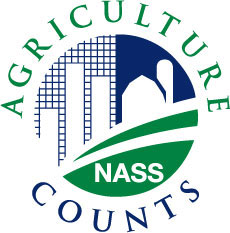Iowa Secretary of Agriculture Mike Naig commented on the 2024 Iowa Crop Production Annual Summary released by the United States Department of Agriculture (USDA) National Agricultural Statistics Service (NASS). The national summary and state summaries are released in January each year.
“Iowa’s resilient farmers battled another year of rollercoaster weather conditions. The spring started with the lingering historic drought and a record number of tornadoes, summer brought devastating floods and other severe weather, and dry conditions led to an uninterrupted fall harvest. Despite those challenges, Iowa’s hardworking and innovative farmers once again produced another robust corn and soybean crop,” said Secretary Naig.
“Strong productivity must be met with strong market demand. The combination of low commodity prices and high input costs means Iowa’s ag economy remains soft. We must continue to build new and expand existing markets for our products and that will remain my focus in the year ahead.”

2024 Iowa crop production highlights –

At 211 bushels per acre and 2.63 billion bushels of production, this year’s Iowa corn crop ranks as the highest ever yield and second largest production in state history and helped drive the national corn yield of 179.3 bushels per acre to an all-time record.
At 60 bushels per acre and 598 million bushels of production, this year’s soybean crop ranked as the third highest yield and second highest production in Iowa history.
Iowa crop production – Corn for grain production in Iowa for 2024 was estimated at 2.63 billion bushels, according to the USDA NASS Crop Production 2024 Summary. Current year production was up 4 percent from the previous year’s 2.52 billion bushels. Iowa’s corn for grain yield was estimated at a record 211.0 bushels per acre. Area harvested for grain was estimated at 12.5 million acres, 100,000 acres below 2023. Corn planted for all purposes in 2024 was estimated at 12.9 million acres.
Corn for silage production was estimated at 8.16 million tons, up 7 percent from 2023. The silage yield estimate of 24.0 tons per acre was up 4.0 tons per acre from 2023. Producers harvested 340,000 acres of corn for silage, down 11 percent from 2023.
Soybean production was estimated at 598 million bushels in 2024. This was up 4 percent from last year’s 573 million bushels. The Iowa soybean crop yielded 60.0 bushels per acre in 2024. The harvested acreage of 9.96 million was up 80,000 acres from 2023. Soybean planted acreage, at 10.1 million, was up 100,000 acres from 2023.
All hay production for the state was estimated at 3.49 million tons, up 19 percent from the 2.95 million tons produced in 2023. Producers averaged 3.49 tons per acre, up 0.57 tons per acre from 2023. All hay harvested acres were estimated at 1.00 million acres, down 10,000 acres from 2023.
Alfalfa and alfalfa mixtures for hay production was estimated at 2.74 million tons, up 14 percent from 2023. Producers averaged 3.80 tons per acre, up 0.60 tons per acre from 2023. Harvested acres were down 30,000 from last year, to 720,000 acres. Iowa producers seeded 80,000 acres of alfalfa and alfalfa mixtures in 2024, up 14 percent from 2023.
Other hay production was estimated at 756,000 tons, up 38 percent from 2023. Producers averaged 2.70 tons per acre, up 0.60 tons from the 2023 yield. Harvested acres of other hay, at 280,000, were up 20,000 acres from 2023.
United States crop production – Corn for grain production in 2024 was estimated at 14.9 billion bushels, down 3 percent from the 2023 estimate. The average yield in the United States was estimated at a record high 179.3 bushels per acre, 2.0 bushels above the 2023 yield of 177.3 bushels per acre. Area harvested for grain was estimated at 82.9 million acres, down 4 percent from the 2023 estimate.
Soybean production in 2024 totaled 4.37 billion bushels, up 5 percent from 2023. The average yield per acre was estimated at 50.7 bushels, up 0.1 bushel from 2023. Harvested area, at 86.1 million acres, was up 5 percent from last year.
The complete report can be found on the USDA NASS website at www.nass.usda.gov/Publications.
